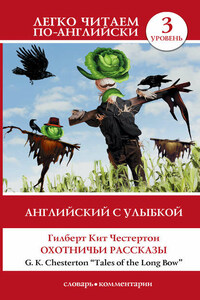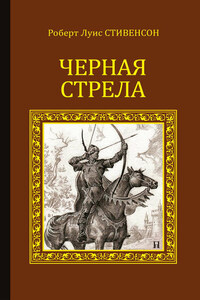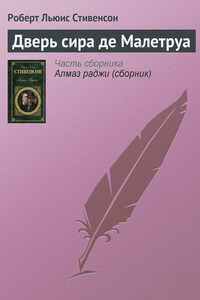Story of the young man with the cream tarts[1]
During his residence in London, the famous Prince Florizel of Bohemia gained the affection of all classes by his manners and by his generosity. He was a remarkable man even by what was known of him. Although he had an even temper and a philosophy of a ploughman, the Prince of Bohemia also had a taste for the adventurous and eccentric life. Now and then[2], when he felt blue, when there was no laughable play in any of the London theatres, and when the season of the year was unsuitable for his favourite sports, he asked his confidant and Master of the Horse[3], Colonel Geraldine, to a walk. The Master of the Horse was a young officer of a brave and even hot temper. He was glad to take a walk and hastened to make ready. Long practice and a varied experience of life gave him an ability to disguise. He could adapt, not only his face and manners, but his voice and almost his thoughts, to those of any rank, character, or nation. In this way he distracted attention from the Prince, and sometimes used it in order to make their way into strange societies. Of course, they never told of these secrets to the civil authorities. The strong courage of the one and the ready invention and devotion of the other brought them through many dangerous adventures. They grew in confidence as time went on.
One evening in March hard rain drove them into an Oyster Bar in the neighbourhood of Leicester Square. Colonel Geraldine was dressed and painted to represent a person connected with the Press. The Prince, as usual, changed his appearance by the addition of false whiskers and a pair of large eyebrows. These lent him a shaggy and weather-beaten air, which formed the strongest disguise. So the commander and his companion sipped their brandy and soda in security.
The bar was full of guests, male and female; but none of them wanted to talk with our adventurers. None of them was interested in a nearer acquaintance. Nothing happened, and the Prince was yawning, and was beginning tired of the whole walk. Suddenly the doors were pushed violently open. A young man, followed by a couple of commissionaires, entered the bar. Each of the commissionaires carried a large dish of cream tarts under a cover, which they at once removed. Then the young man made the round of the company, and offered these tarts to everyone with an exaggerated courtesy.[4] Sometimes the offer was laughingly accepted; sometimes it was firmly, or even harshly, rejected. In these latter cases the man always ate the tart himself, with some more or less humorous commentary.
At last he approached Prince Florizel.
“Sir,” said he and bowed. Holding the tart between his thumb and forefinger, he said, “will you honour a stranger? I can answer for the quality of the pastry. I have eaten two dozen and three of them myself since five o'clock.”
“I prefer,” replied the Prince, “to look not so much at the nature of a gift as to the spirit in which it is offered.”
“The spirit, sir,” returned the young man, with another bow, “is one of mockery.”
“Mockery!” repeated Florizel. “And whom do you propose to mock?”
“I am not here to explain my philosophy,” replied the other, “but to give away these cream tarts. If I mention that I heartily mock myself here, I hope you will consider honour satisfied. If not, you will make me to eat my twenty-eighth tart, and I am tired of the exercise.”
“I am sorry for you,” said the Prince, “and I want to rescue you from this dilemma, but upon one condition. If my friend and I eat your cakes-for which we have neither of us any natural love – we shall expect you to join us at supper. The recompense, you know.”
The young man seemed to reflect.
“I have still several dozen upon hand,” he said at last; “and that means I have to visit several more bars before my great affair is finished. This will take some time; and if you are hungry…”
The Prince interrupted him with a polite gesture.
“My friend and I will accompany you,” he said; “for we have already a deep interest in your mode of passing an evening. And now allow me to sign the treaty for both.”
And the Prince swallowed the tart with the best grace imaginable.
“It is delicious,” said he.
“I see you are a connoisseur[5],” replied the young man.
Colonel Geraldine likewise did honour[6] to the pastry. Everyone in that bar either accepted or refused his delicacies, and the young man with the cream tarts led the way to another and similar place. The two commissionaires followed immediately after. The Prince and the Colonel, arm-in-arm, and smiling to each other, went behind. In this order the company visited two other taverns, where some were refusing, some were accepting the favours of this bum hospitality. The young man himself ate each rejected tart.
After the third saloon the young man counted his store. There were nine tarts, three in one tray and six in the other.
“Gentlemen,” said he, addressing himself to his two new followers, “I don't want to delay your supper. I am sure you must be hungry. I feel that I owe you something special. And on this great day for me, when I am closing a career of folly by my silly action, I wish to behave handsomely to all who supported me. Gentlemen, you will not wait long. Although my health is ruined by previous excesses, at the risk of my life, I am ready to act.”
















